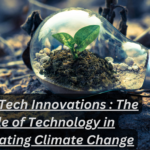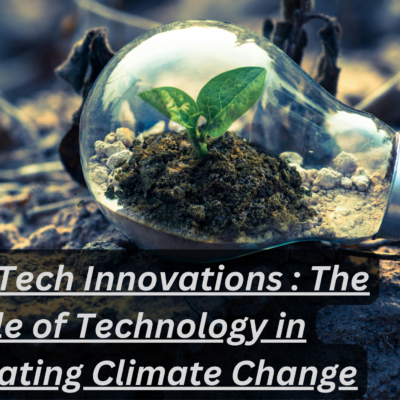Artificial Intelligence (AI) is not just a buzzword but a transformative technology that is reshaping industries, economies, and our daily lives. From smart assistants to autonomous vehicles, AI’s capabilities are growing exponentially, paving the way for innovations that were once the stuff of science fiction. In this blog, we will explore the trends and predictions for AI in the coming years, highlighting its potential to revolutionize various sectors.
1. AI in Healthcare
One of the most promising applications of AI is in the healthcare sector. AI-powered tools are enhancing diagnostic accuracy, predicting patient outcomes, and personalizing treatment plans. For instance, machine learning algorithms can analyze medical images to detect anomalies with greater precision than human doctors. Predictive analytics is helping in early detection of diseases like cancer, enabling timely intervention.
Moreover, AI is facilitating the development of personalized medicine. By analyzing a patient’s genetic information, AI can recommend tailored treatments that are more effective and have fewer side effects. This trend is expected to continue, with AI playing a pivotal role in drug discovery, clinical trials, and patient care management.
2. AI in Finance
The financial industry has been quick to adopt AI for various applications, from fraud detection to customer service. AI algorithms analyze transaction patterns to identify fraudulent activities in real-time, minimizing losses for financial institutions. Robo-advisors are using AI to provide personalized investment advice, helping users make informed decisions.
Furthermore, AI-driven chatbots and virtual assistants are enhancing customer service by providing instant responses to queries and handling routine tasks. As AI technology advances, we can expect more sophisticated applications in areas like risk management, credit scoring, and algorithmic trading.
3. Autonomous Vehicles
The development of autonomous vehicles is one of the most exciting frontiers in AI. Companies like Tesla, Waymo, and Uber are investing heavily in self-driving technology, which promises to revolutionize transportation. AI-powered systems can process vast amounts of data from sensors and cameras to navigate roads, avoid obstacles, and make split-second decisions.
While fully autonomous vehicles are not yet mainstream, significant progress is being made. AI’s role in enhancing safety features, optimizing routes, and reducing traffic congestion is already evident. The future will likely see widespread adoption of autonomous vehicles, transforming how we commute and transport goods.
4. AI and the Workplace
AI is set to redefine the future of work, automating repetitive tasks and augmenting human capabilities. Natural language processing (NLP) and machine learning are enabling AI to perform complex tasks such as data analysis, content creation, and customer interactions. This shift will allow employees to focus on more strategic and creative endeavors.
However, the rise of AI also raises concerns about job displacement. While AI will create new job opportunities, there will be a need for reskilling and upskilling the workforce to adapt to the changing landscape. Organizations will need to invest in training programs to ensure employees can work alongside AI effectively.
5. AI in Education
The education sector is experiencing a transformation with the integration of AI. Intelligent tutoring systems provide personalized learning experiences, adapting to the needs and pace of individual students. AI-powered tools can grade assignments, identify learning gaps, and recommend resources to enhance understanding.
Moreover, AI is facilitating remote learning, making education accessible to a broader audience. Virtual classrooms and AI-driven educational platforms offer interactive and engaging learning experiences. As AI technology advances, its role in education will become even more prominent, enabling more efficient and effective teaching methods.
6. AI Ethics and Regulation
As AI becomes more pervasive, ethical considerations and regulatory frameworks are gaining importance. Issues such as data privacy, algorithmic bias, and the impact of AI on employment need to be addressed. Ensuring that AI systems are transparent, fair, and accountable is crucial for building trust and acceptance among users.
Governments and organizations are working on developing guidelines and regulations to govern the use of AI. Ethical AI practices will be essential to prevent misuse and ensure that AI benefits society as a whole. The future will likely see a balance between innovation and regulation, fostering responsible AI development.
7. AI in Entertainment
AI is transforming the entertainment industry by enabling the creation of more immersive and personalized experiences. In video games, AI algorithms generate realistic environments and intelligent non-player characters (NPCs), enhancing gameplay. AI is also being used in content recommendation systems, helping streaming platforms like Netflix and Spotify suggest relevant movies and music to users.
Moreover, AI-powered tools are being used in the film industry for tasks such as script analysis, special effects, and even casting decisions. The ability to analyze vast amounts of data allows filmmakers to predict audience preferences and tailor content accordingly. As AI continues to evolve, its impact on the entertainment industry will only grow, offering new possibilities for creativity and engagement.
8. AI and Smart Cities
The concept of smart cities is becoming a reality, thanks to AI. AI-powered systems are being used to manage traffic flow, reduce energy consumption, and improve public safety. For example, smart traffic lights can adjust in real-time based on traffic conditions, reducing congestion and emissions.
AI is also enhancing urban planning by analyzing data from various sources to optimize infrastructure development. In addition, AI-driven applications are improving waste management, water distribution, and emergency response systems. The integration of AI in smart cities promises to create more efficient, sustainable, and livable urban environments.
9. AI in Retail
The retail industry is leveraging AI to enhance customer experiences and streamline operations. AI-powered chatbots provide instant customer support, while recommendation engines suggest products based on browsing history and preferences. Predictive analytics helps retailers manage inventory, forecast demand, and optimize pricing strategies.
Moreover, AI is enabling the development of cashier-less stores, where customers can simply pick up items, and the payment is processed automatically. This seamless shopping experience is made possible by AI algorithms that track customer movements and product interactions. The future of retail will see even greater integration of AI, offering more personalized and efficient shopping experiences.
10. The Evolution of AI Technologies
The future of AI will be shaped by continuous advancements in underlying technologies such as machine learning, deep learning, and neural networks. Research in these areas is driving the development of more sophisticated and capable AI systems. Quantum computing, with its ability to process complex calculations at unprecedented speeds, holds the potential to further accelerate AI innovation.
Additionally, the democratization of AI, with accessible tools and platforms, is enabling more organizations to leverage AI for various applications. Open-source AI frameworks and cloud-based AI services are lowering the barriers to entry, fostering a wave of innovation across industries.
Conclusion
The future of artificial intelligence is incredibly promising, with the potential to transform every aspect of our lives. From healthcare to entertainment, AI is set to drive innovation and improve efficiency across various sectors. However, it is crucial to address the ethical and regulatory challenges to ensure that AI develops in a way that benefits society as a whole. As we look ahead, embracing AI’s potential while being mindful of its implications will be key to shaping a future where technology serves humanity’s best interests.
By incorporating these trends and predictions, you can stay ahead of the curve and understand the profound impact AI will have on our world. Whether you are a tech enthusiast, a business leader, or simply curious about the future, keeping an eye on these developments will be essential in navigating the AI-driven future.









